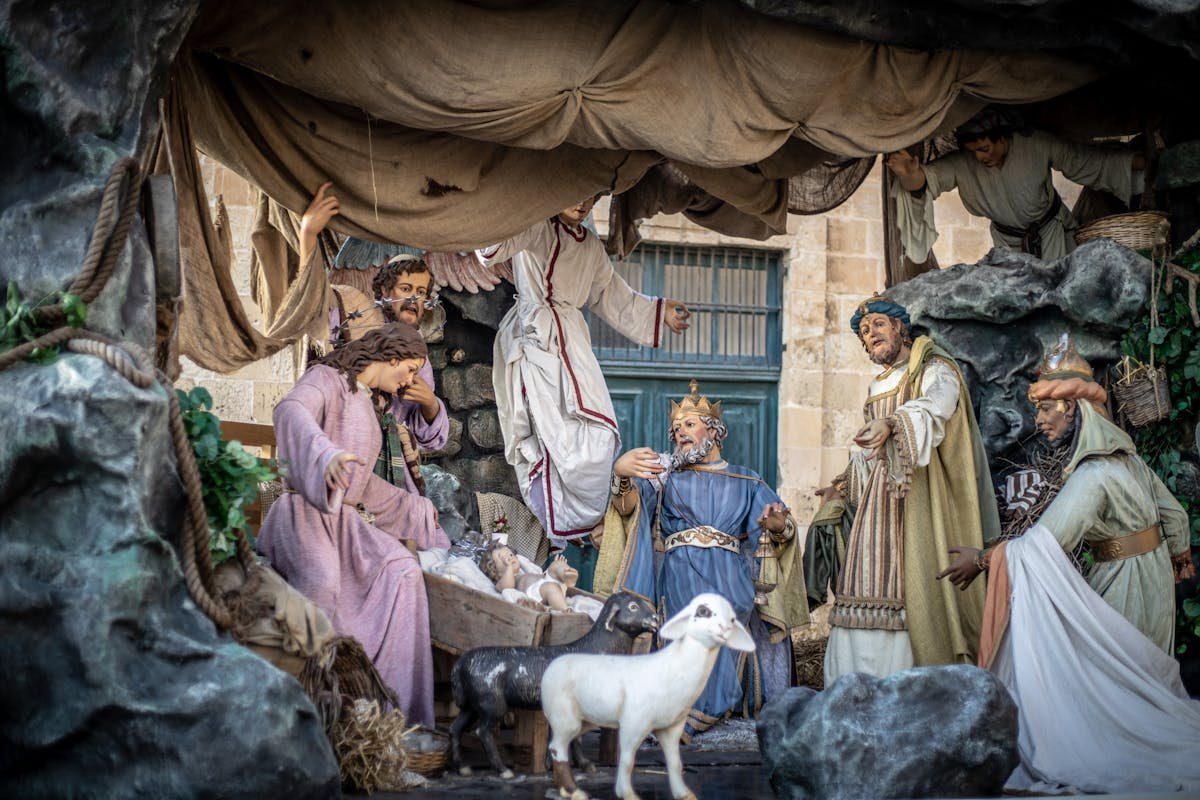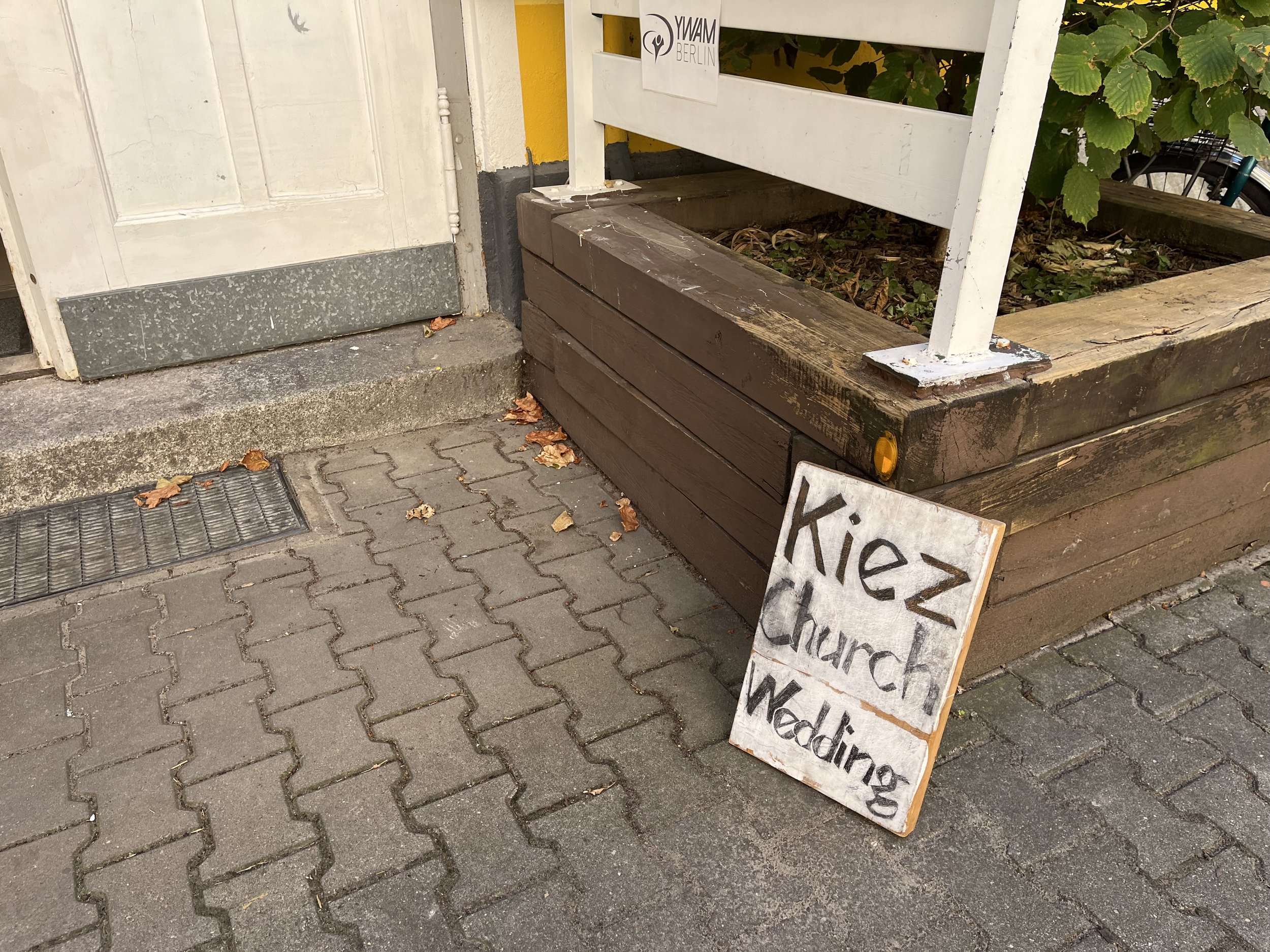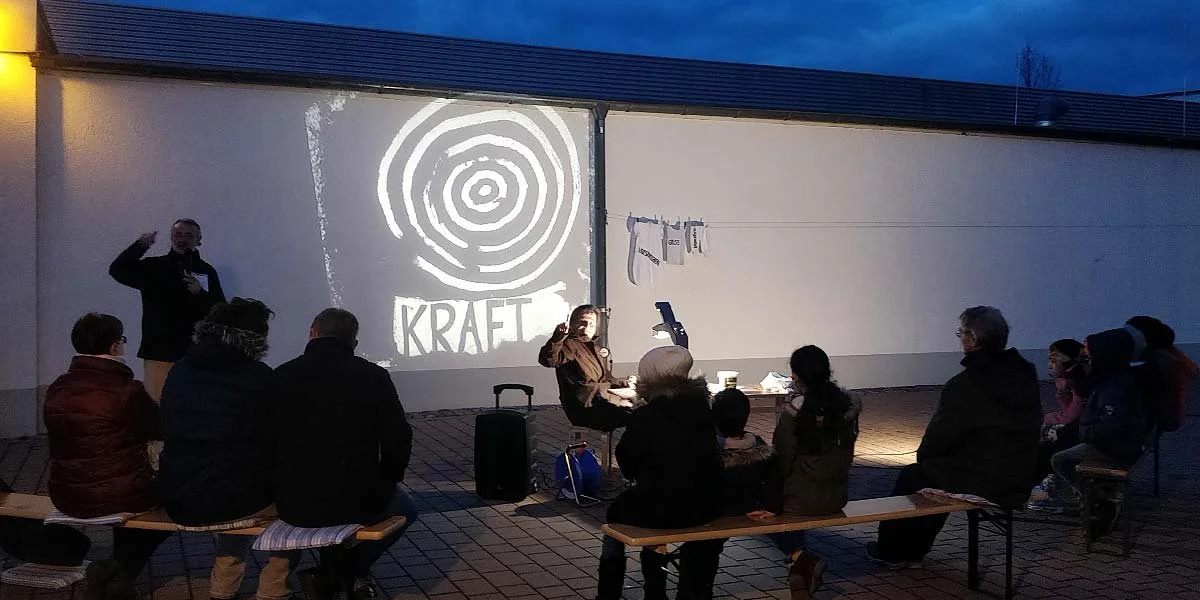If you’re anything like me, you pay attention when an e-mail is marked “URGENT!!”
The particular e-mail I have in mind carried a subject line that was direct and equally attention-grabbing: “Christian nationalism is coming for Europe.”
The content was a single link, to an article written by United States journalist Katherine Stewart for The New Republic on the rise of the Christian Right in the United Kingdom. In it, Stewart tells of how she believes a form of hyper-patriarchal, homophobic and nationalistic Christianity often associated with evangelicals in the US is gaining a beachhead in the UK. The developments there, she writes, “are like a window on the American past.
“This is how things must have looked before the antidemocratic reaction really took hold,” she wrote.
As a correspondent covering European Christians and as a scholar teaching religion in Germany, I’ve tracked some of the developments, institutions and movements Stewart cites. While rumors of the Christian right’s rise in Europe need to be taken seriously, it is also vitally important that the careful observer of religion take note of some of the complexities that have shaped the Christian right’s contours in ways distinct from, if related to, the forms we see taking hold in the U.S.
No Christmas in Italy?
Imagine a December without seasonal decor, special treats, parties with friends, or a nativity. In other words, imagine a December without Christmas.
For many evangelicals in Italy, that is exactly how it should be.
Not celebrating Christmas — nor Easter — is a way to distinguish themselves from a Catholic holiday that they feel has lost any real meaning or focus on Jesus. It is a way, they say, to assert their identity by opposition to the status quo.
According to a 2023 survey by Ipsos (a France-based research center), over two-thirds of Italy’s residents are Christian (68%), with 61% saying they are Catholic, just 4% Protestant, and 3% identifying as “other Christians.” Over a quarter of Italians are non-religious (28%).
Evangelicals in Italy feel that as a small minority, Christian identity has been largely defined not by who they are, but who they are not — not Roman Catholic, not theologically liberal, not culturally secular. “In such a situation, evangelicals feel a need to better assert their identity based on core Gospel essentials rather than on cultural features,” says JD Gilmore, a church planter in Palermo and coordinator of Impatto (Acts 29 in Italy).
That is why Donato Trovarelli says he skips the aperitivi, the Christmas eel, the panettone and other trappings of what is often held up as Christianity’s biggest holiday. The charismatic author of three books says traditions in Italy have nothing to do with “born again” evangelicals. That is why, Trovarelli says evangelicals and Pentecostals like him “drive out of our places of worship all the traditions of the tree, the nativity scene, the figure of Santa Claus, Jesus as a child, and every other popular tradition of any non-Christian nature or religion.”
Berlin Like Jazz
It’s Saturday night and you’re looking for jazz in Germany’s capital. You could catch an after-midnight jam session at A-Trane in Charlottenburg, get cozy in the stylish, intimate ambience of the Zig Zag Club in Friedenau, or catch a solo saxophonist serenading the crowd at Berlin’s oldest jazz club, Quasimodo.
And there’s one more option: You could wait until morning and go to church in the Wedding district.
One part church plant, one part jazz project, Kiez Church (Neighborhood Church) in the multiethnic district of Wedding is led by Ali and Rich Maegraith, Australian missionaries who say they want to bring the gospel to the cosmopolitan city’s art scene.
Berlin is a magnet for musicians—a place to connect and prove your chops. The German capital is a hub for many different European music scenes, from electronic dance to Afropop, classical to klezmer, and attracts creative people from all over.
The Maegraiths, who moved to Berlin in 2015, say that’s their in. The music provides them with evangelical opportunities. Rich, a professional jazz musician, and Ali, a vocalist and songwriter, moved to the city to serve with the European Christian Mission agency.
“We’ve met many people through jam sessions, performances or just busking on the streets,” Ali told CT. When they first arrived, Rich said he would go to jam sessions every night, all over the city. “In Berlin, the jazz scene is already a community, where people will play and hang out together until the early hours of the morning,” he said, “they even call it ‘jazz church.’”
Berlin’s nightlife is more readily associated with techno and punk, but it also has a long, historical relationship with jazz. The improvisational, syncopated music first came to the German capital at the end of World War I, when it was warmly received by the post-war population of the Weimar Republic.
When the American-born French singer and dancer Josephine Baker visited Berlin in 1925, she found the city dazzling with a vibrant jazz scene. Her performances were received with warm adulation. And popular acts like Louis Armstrong and Duke Ellington took the city by storm at a time when it was the third largest metropolitan area in the world by population.
Nazis put an end to jazz when they took control, but the music came back with the American victory in World War II. Soldiers stationed in the city brought the music of Tommy Dorsey, Benny Goodman and Miles Davis with them. This time, jazz stuck.
Today, Berlin is one of the best places in Europe to hear a live jazz show. And one of the places you can do that is at Kiez Church Wedding.
Piano, piano: In Europe, evangelicals are divided over the right relationship with Rome.
Leonardo De Chirico is in an ongoing argument with the Italian government about the “intrinsic characteristics” of religious buildings.
The evangelical pastor insists that Breccia di Roma (Breach of Rome), which is located in a simple storefront about a kilometer from the Colosseum, is a church. Christians meet there regularly to pray, praise God, and listen to the preaching of the Word. The national tax authority has noted, though, that the multifunctional space, which also houses a theological library and a missions training center, does not have the vaulted ceilings, stained glass, raised altar, candles, or saint statues commonly associated with churches in the majority-Catholic country and therefore doesn’t qualify for religious tax exemptions.
“The arguments are silly and poor,” De Chirico told CT. “The pictures they showed were of impressive buildings, but we showed that Muslim prayer rooms are simple and some Catholic churches meet in shops. Synagogues look like our space. They are all tax-exempt. We are not asking for privilege. We are not asking for something that others don’t have.”
This conflict has been going on since 2016. A lower court sided with the Reformed Baptist church, but the tax authority filed an appeal. The case is now going to Italy’s Supreme Court.
But tax-exempt status is not the most serious disagreement De Chirico has with Italians about what a church is. In 2014, he wrote a pamphlet critiquing the papacy. In 2021, the Reformed pastor and theology chair of the Italian Evangelical Alliance wrote a book arguing that the “theological framework of Roman Catholicism is not faithful to the biblical gospel.”
So it frustrated him, to say the least, when Thomas Schirrmacher, the head of the World Evangelical Alliance (WEA), joined an ecumenical prayer vigil in St. Peter’s Square, Vatican City, in September. It seemed to him that the secretary general of the global evangelical association was embracing the spiritual leadership of Pope Francis and endorsing a vision of unity not grounded in the gospel.
“When you pray with someone in public, you are saying that the differences between our theologies are mere footnotes,” De Chirico said. “Dialogue is welcome, but there are core differences we cannot forget or ignore.”
In my latest for Christianity Today, I take a look at how European evangelicals approach church planting, ecumenical dialogue and other issues in contexts where Catholicism remains predominant.
Belarusian Evangelicals Fear Growing Isolation
Pastor Vitaly Chichmarev doesn’t hesitate to use the word persecution.
“Yes,” he told CT, “the Belarusian church is persecuted.”
Chichmarev, who leads Light of Hope, a Baptist congregation in Minsk, recently spent seven months in prison. He was arrested in front of his teenage daughter in early 2022 for his participation in the massive 2020 protests against the controversial reelection of Belarus’s authoritarian president, Alexander Lukashenko.
He is back serving his congregation in the nation’s capital now. He’s happy to return to church work, be at home with his family, and release an EP of some new music with his rock band AntiVirus. But he hasn’t forgotten the big picture in his country, Belarus. He believes the situation for Christians there is dire.
“We are not able to rent rooms for meetings,” he said. “New churches are not allowed to register. Catholics have had buildings taken away from them. Among the Protestant pastors, some, like me, have been in jail.”
The Norway-based human rights organization Forum 18 agrees. The group has documented a tightening web of restrictions on the free exercise of religion in Belarus. Secret police surveil evangelicals and other religious groups, raid their churches, contrive evictions, and detain religious leaders. Authorities require extensive bureaucratic paperwork to approve church buildings, to allow any meetings outside of church buildings, or to permit foreign visitors, who are frequently denied entry into the country.
These restrictions have grown more serious as Lukashenko has cracked down on every part of civil society that might challenge his control. He has been in power since 1994 and is frequently called a dictator by international observers.
The US government is also “concerned about the constraints on religious freedom in Belarus, as part of the whole-of-society human rights repressions committed by the Lukashenko regime,” according to a spokesperson at the Department of State. US officials, including embassy representative Ruben Harutunian, have met with Belarusian authorities to advocate for more freedom. In particular, the US urged the regime to ease state pressure on clergy for participating in political life in Belarus.
The challenges have deepened because of the international situation. Belarus is sandwiched between Russia, Ukraine, and European Union member states Latvia, Lithuania, and Poland. It has become a close ally of Russia and supports its eastern neighbor in the war with Ukraine. Because of the conflict, Belarusian churches have found themselves cut off from global partners.
This has taken a toll on churches like Chichmarev’s. Light of Hope had around 100 members in 2020. About 45 remain, with more than half of the congregation fleeing to Poland, Georgia, and other countries to avoid military mobilization and escape the ongoing repression.
Article 31 of the Belarusian constitution provides accommodations for church gatherings and the public profession of faith. According to the government, there are 3,563 registered religious institutions in Belarus, representing 174 religious organizations.
Evangelicals, however, account for less than 2 percent of the population. And they are treated as second-class citizens under the law, according to Leonid Mikhovich, president of the Baptist Union in Belarus and rector at Minsk Theological Seminary. Even so, Mikhovich is ambivalent about using the word persecution.
Volunteers for the Senfkorn Stadtteilmission share the Christmas story on a cold winter’s night in Gotha, Germany (PHOTO: courtesy Senfkorn)
How migrants are changing Europe's churches
“Each apartment block has its own community, its own dynamics, its own culture,” Ute Paul said as she walked among the Plattenbau — formidable apartments built of prefabricated concrete slabs — in Gotha West, a working-class suburb of the central German city, Gotha.
Originally constructed as a planned housing development (Neubaugebiet) during the waning years of the socialist East German Republic, the district is now home to migrants who have made their way from Ukraine and Eritrea, Afghanistan and Romania, Nigeria and Syria. Many of them are relocated to places like Gotha West, where they often end up grouped with their fellow countrymen and forming cliques based on shared language, religion, or background.
On Coburger Place, a centrally located square with shops and a small casino that serves as the neighborhood’s main hangout spot, there is a small storefront with the words, “from dark to light” written across its windows.
The shop is the principle gathering place for the Mustard Seed District Mission (senfkorn.STADTteil Mission). Since 2015, pastor Michael Weinmann and his wife Christiane have been leading Mustard Seed and “experimenting with new forms of community in Gotha-West,” said Paul, who joined the pair along with her husband, Frank, in 2021.
Focusing less on events and more on “relationships, ‘accidental’ encounters, and natural life in the district,” Paul said the mission has little to show in terms of deliverables or church attendance.
Instead, reflecting the challenges and opportunities of migrant mission in Europe, Paul said Mustard Seed has been able to “create a vibrant network of relationships between people of different backgrounds and origins from across the world.”
Along the way, Paul said the Mustard Seed team has had to unlearn a lot of what they thought they knew about mission and adapt to the everyday realities of those God has given them to serve.
Since the unprecedented migratory movements that shook Europe in 2015 and 2016, an increasing number of Christian organizations have had to reshape their institutions and rethink the identity of Christianity from below.
Mustard Seed is just one example of how the movement of asylum seekers, economic migrants, and internally displaced persons has created new commissions and institutions to meet changing facts on the ground across the continent.
Migration to Europe is not a recent phenomenon. But since 2013, some 17.2 million migrants from outside the European Union (EU) have come to Europe, finding their way to places like Germany and Spain, the UK and Italy. As they arrived, they have sparked public discourse around European culture, values, and religious identity.
Amid the debate, churches have played key roles in the process of integration. Beyond offering religious hospitality, a 2018 study from the Churches’ Commission for Migrants in Europe (CCME) found how congregations provide “symbolic resources for positive self-identification and opportunities for interaction with others as well as crucial services.”
The result has been a transformation of the churches themselves.





